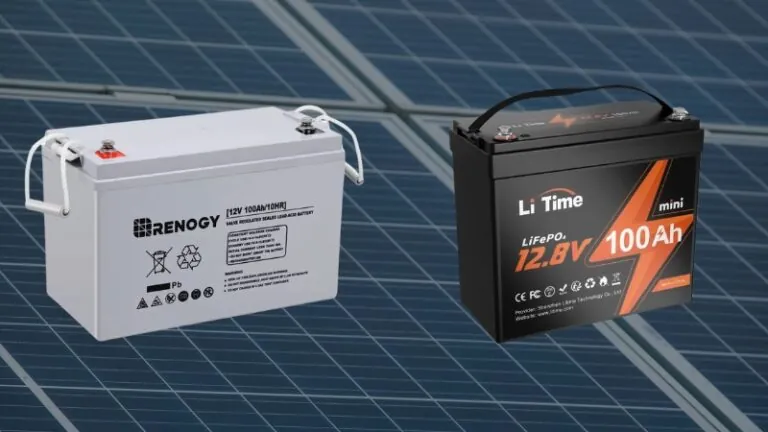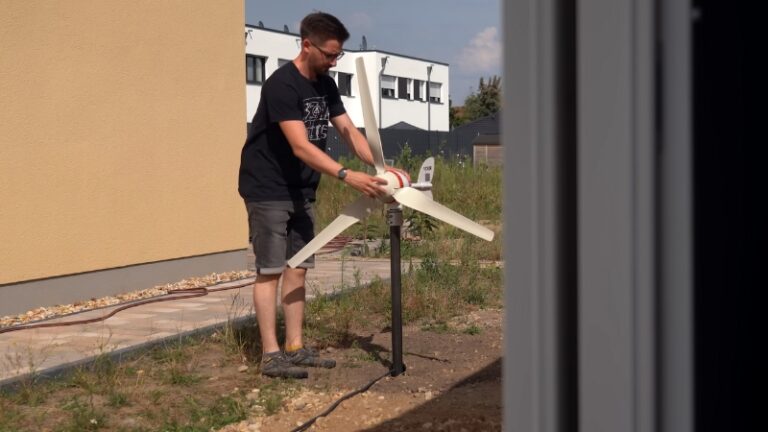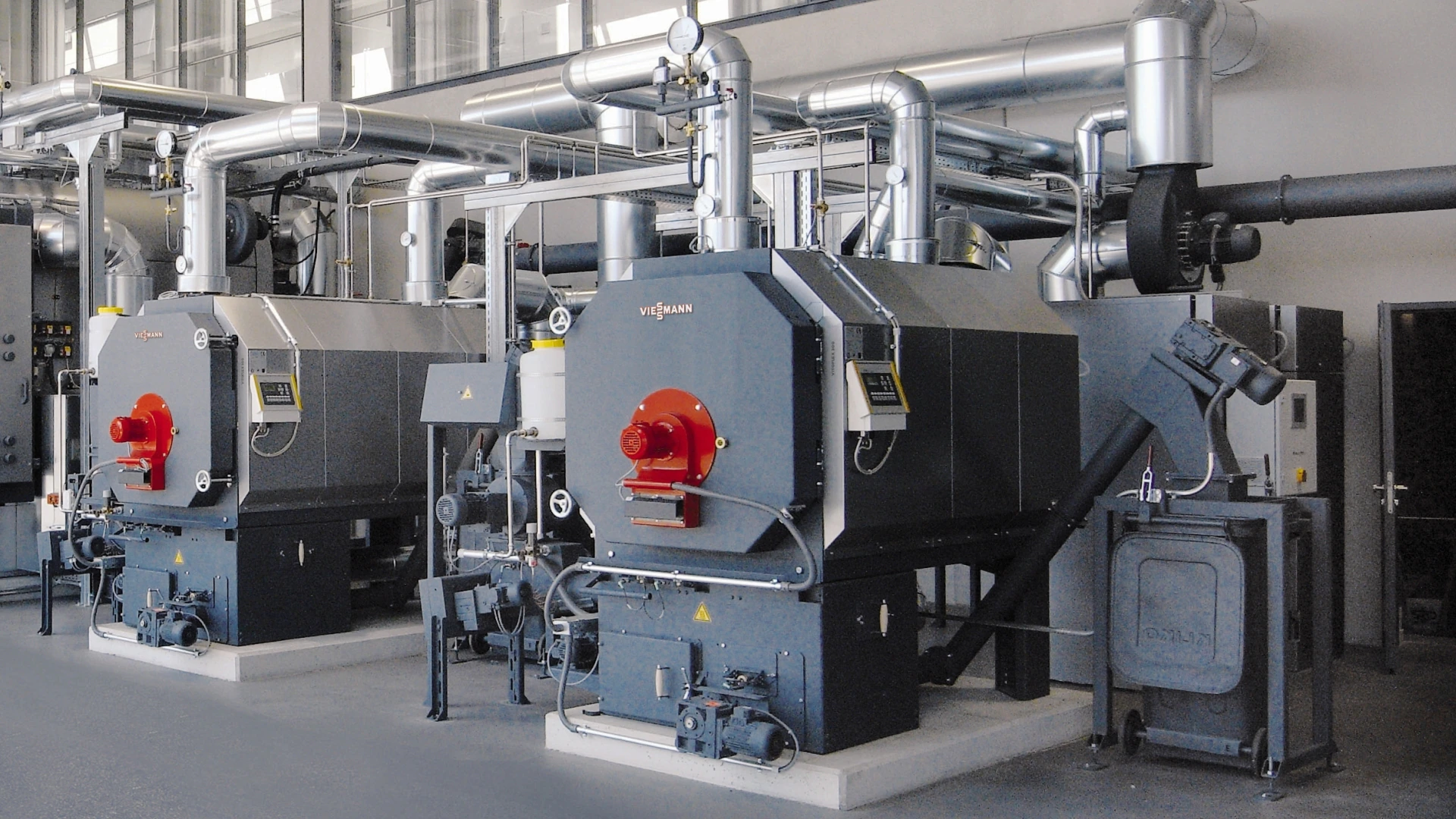Biomass boilers are a cutting-edge solution for heating and providing hot water by burning natural materials such as wood pellets, chips, or logs.
This technology is gaining traction as an eco-friendly and cost-effective alternative to traditional heating systems, particularly in the UK and Europe.
But what exactly makes biomass boilers a smart choice for homeowners and businesses alike?
Key points:
- Biomass boilers are environmentally friendly, using carbon-neutral fuels like wood pellets, chips, or logs for heating and hot water.
- They offer a cost-effective heating solution, especially for larger properties, with long-term savings and potential earnings from the Renewable Heat Incentive (RHI).
- Regular maintenance, including ash removal, is necessary for optimal functioning and longevity of the boilers.
- Biomass boilers can seamlessly integrate with existing heating systems and contribute to healthier indoor and outdoor air quality.
- Choosing a qualified installer and considering factors like boiler type, size, efficiency, and automation is crucial for the successful installation and operation of a biomass boiler.
The Eco-Friendly Aspect
One of the most compelling reasons to opt for a biomass boiler is its environmental friendliness. Biomass is considered a carbon-neutral fuel.
Here’s why: as these materials grow, they absorb CO2 from the atmosphere. When burned, they release this CO2 back, creating a balanced cycle.
This process contrasts sharply with fossil fuels, which add more CO2 to the atmosphere, contributing to climate change.
Similarly, enhancing your home’s thermal efficiency through upgrading your insulation can significantly reduce energy consumption, further contributing to a sustainable living environment. This is especially important in regions with extreme temperatures, where maintaining a consistent indoor environment can be challenging and expensive.
Types and Costs
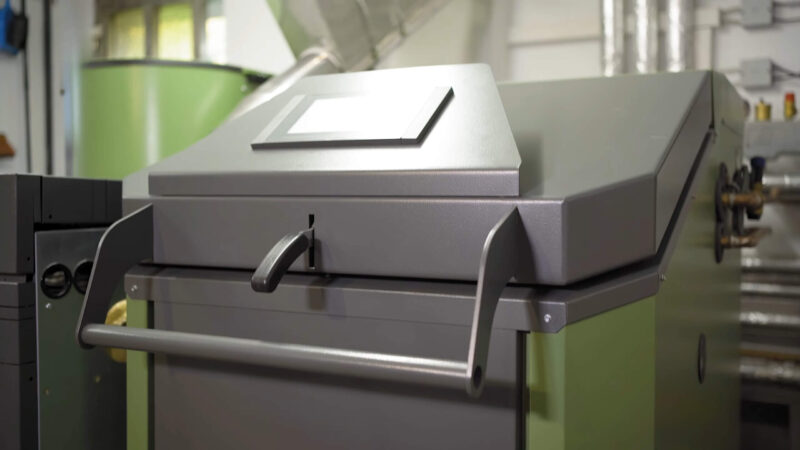
Biomass boilers come in various forms, with wood pellet and log boilers being the most prevalent for domestic use.
The costs for these systems range from £11,000 to £25,000, influenced by factors like size, type, and automation level.
Wood pellets, commonly used in these boilers, are made from forestry waste and boast a high heat output of 5,000kW/tonne.
Maintenance and Efficiency

Maintenance is a crucial aspect of owning a biomass boiler. Regular tasks include ash removal and general upkeep.
The maintenance requirements, however, vary depending on the sophistication of the boiler. It’s important to consider these factors alongside efficiency, controls, and warranty when choosing a boiler.
Financial Incentives and Regulations
To make biomass boilers more attractive, the UK government offers the Renewable Heat Incentive (RHI).
This scheme provides financial rewards for using renewable heating technologies. To qualify, your biomass supplier must be on Ofgem’s accredited list.
Additionally, choosing a qualified installer is vital for both safety and compliance with regulations.
Stability and Cost-Effectiveness
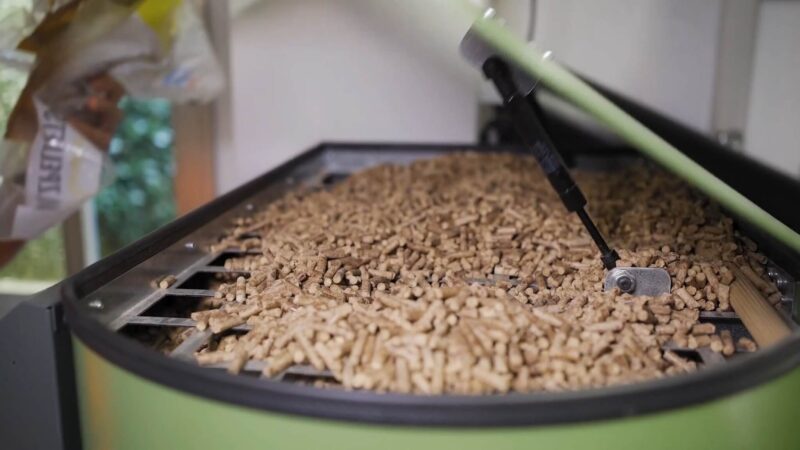
A key advantage of biomass boilers is their stability. They are not subject to the volatility of global oil prices, providing a more predictable and stable heating solution.
This aspect, combined with the potential for RHI payments, makes biomass boilers particularly appealing for larger properties where heating demands are higher.
Installation Considerations
When installing a biomass boiler, two critical factors to consider are the size of the fuel store and the delivery options.
Both wood pellets and log boilers require a hot water cylinder, which should be factored into the installation plan.
Integration with Existing Systems and Long-Term Benefits
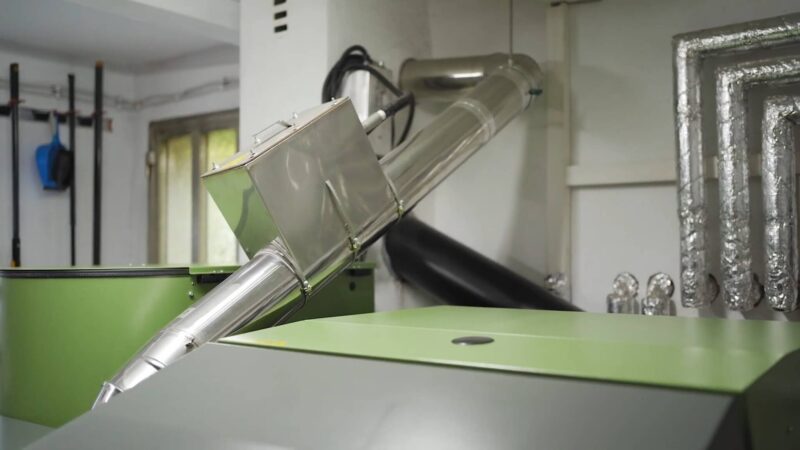
One of the remarkable features of biomass boilers is their ability to integrate seamlessly with existing heating systems.
This adaptability means you can switch to a biomass boiler without overhauling your entire heating system.
It’s a practical solution for those looking to transition to greener energy without incurring excessive costs or disruption.
Long-Term Savings and ROI
While the initial investment for a biomass boiler may seem substantial, it’s important to consider the long-term savings.
Biomass fuel, typically cheaper than fossil fuels, can lead to significant cost savings over time.
Furthermore, the potential earnings from the RHI can provide an additional financial return, making the investment in a biomass boiler not only eco-friendly but economically wise.
Healthier Living Environment
Biomass boilers contribute to a healthier living environment. Unlike fossil fuels that can emit harmful gases, the emissions from biomass combustion are considerably less toxic.
This means better air quality both inside and outside your home, contributing to the well-being of your family and the community.
Contribution to Local Economies
Opting for a biomass boiler also supports local economies. Since biomass fuels like wood pellets are often sourced locally, choosing this heating option helps stimulate local industries and reduces the carbon footprint associated with transporting fuel over long distances.
Future-Proofing Your Home

With increasing environmental regulations and the global shift towards renewable energy, installing a biomass boiler is a forward-thinking choice.
It future-proofs your property against potential regulatory changes and increases its appeal in a market that’s becoming increasingly eco-conscious.
Aesthetic Appeal
Beyond practicality and efficiency, biomass boilers can also add an aesthetic appeal to your home.
The design of these boilers has evolved, offering sleek and modern options that can complement your home’s interior.
Making the Right Choice
When deciding on a biomass boiler, it’s essential to research and consult with experts. Look for suppliers and installers with solid reputations and a track record of successful installations.
Pay attention to the automation level of the boiler, as more sophisticated systems offer greater convenience and efficiency.
Enhancing Sustainability and Resilience
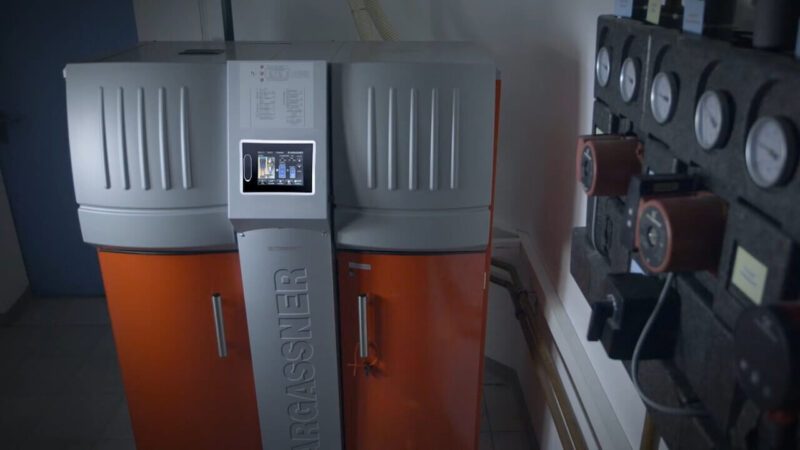
The sustainability of biomass boilers extends beyond their carbon-neutral status. By utilizing renewable resources, these systems play a pivotal role in reducing reliance on non-renewable energy sources.
This shift not only helps in conserving limited fossil fuels but also aligns with global sustainability goals, contributing to a more balanced and responsible energy ecosystem.
Resilience Against Energy Fluctuations
Biomass boilers provide a level of resilience against the unpredictability of energy markets.
By utilizing locally sourced biomass, households and businesses become less vulnerable to external energy supply disruptions and price fluctuations.
This independence is especially crucial in times of energy instability, offering a secure and reliable source of heating and hot water.
Impact on Rural Development
The growing demand for biomass fuels can stimulate rural development.
By creating a market for forestry by-products and agricultural residues, biomass boilers can generate new income streams for farmers and forest managers.
This economic boost can lead to job creation and the revitalization of rural communities, promoting sustainable land management practices.
Encouraging Sustainable Forestry
The increased use of biomass for energy promotes sustainable forestry practices.
As the demand for wood pellets and chips grows, it encourages the responsible management of forests, ensuring that they are maintained as vital carbon sinks and biodiversity reservoirs.
This responsible approach to forestry further amplifies the environmental benefits of biomass boilers.
Educational and Social Impacts
The adoption of biomass boilers also serves an educational purpose. It raises awareness about renewable energy sources and the importance of reducing carbon emissions.
This education can foster a greater sense of environmental responsibility among individuals and communities, encouraging more sustainable lifestyle choices.
Fostering Community Engagement
The implementation of biomass heating systems, particularly in communal settings like schools or community centers, can foster a sense of community engagement.
It provides a tangible example of sustainable living, encouraging collective efforts towards environmental conservation and energy efficiency.
FAQs
Can biomass boilers be used in urban areas?
Yes, they are suitable for urban areas, provided there’s sufficient space for the boiler and fuel storage and local regulations allow their use.
Are there any specific building requirements for installing a biomass boiler?
Biomass boilers generally require a dedicated space for the boiler itself and additional room for fuel storage. Adequate ventilation and adherence to building codes are also essential.
How often does a biomass boiler need refueling?
The frequency of refueling depends on the size, the efficiency of the system, and the heating demands of the property. Some systems may need weekly refueling, while others can run for longer periods.
Can biomass boilers work with existing radiators and underfloor heating systems?
Yes, they can typically be integrated with existing heating systems, including radiators and underfloor heating, without significant modifications.
What is the lifespan of a biomass boiler?
With proper maintenance, it can last up to 20 years, though this can vary based on the model and usage.
Are there any by-products from burning biomass in these boilers?
The primary by-product of burning biomass is ash, which needs to be periodically removed and can often be used as a fertilizer due to its rich mineral content.
Final Words
Biomass boilers represent a significant step forward in sustainable heating technology.
They offer an environmentally friendly, cost-effective, and stable heating solution, especially appealing in the current climate of rising energy costs and environmental awareness.
When considering a biomass boiler, it’s essential to evaluate the type, cost, maintenance requirements, and installer qualifications.
With the right choice and installation, this unit can be a highly beneficial investment for your property and the planet.



